Ex-Prime Minister Yitzhak Shamir Dies
Yitzhak Shamir, Israel’s seventh Prime Minister and staunch advocate for settlements in the West Bank, passes away in Tel Aviv at the age of 96.
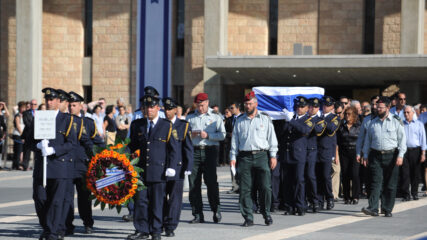
Yitzhak Shamir, Israel’s seventh Prime Minister and staunch advocate for settlements in the West Bank, passes away in Tel Aviv at the age of 96.

Handler moves to Israel in 1948, taking a leadership role in Hapoel Ha-Mizrahi. In 2006, at the age of ninety, he makes Aliyah to Israel for a second time.
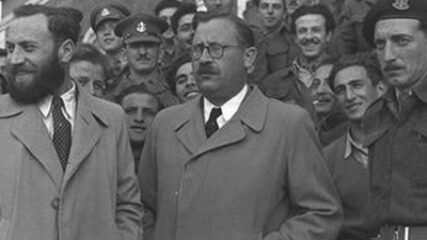
Matti Shmulevitz, a member of the underground Lehi and an advisor to Menachem Begin, passes away at the age of 75 one day after collapsing during a chess game in Tel Aviv.

Rose Luria Halprin, who served twice as the national president of Hadassah, the Women’s Zionist Organization of America, passes away at the age of 83 in New York.
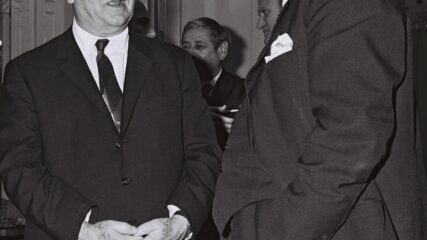
Richard Crossman, who supported Zionist efforts while serving on the Anglo-American Commission of Inquiry, passes away at his home in England from liver cancer.

David Ben-Gurion, (born David Gruen) Israel’s first Prime Minister passes away at the Tel Hashomer-Sheba Medical Center in Tel-Aviv at the age of 87.
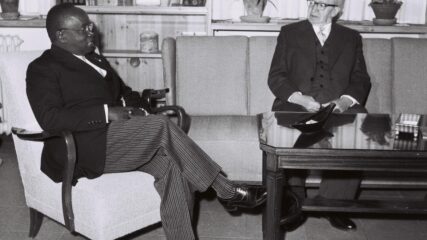
At the end of the traditional thirty-day mourning period for Israel’s first President Chaim Weizmann, Yitzhak Ben-Zvi is inaugurated as Israel’s second President in a Knesset ceremony.

The second secret meeting between the two is a last-ditch effort to persuade Transjordan to stay out of an impending war with the soon-to-be declared State of Israel.
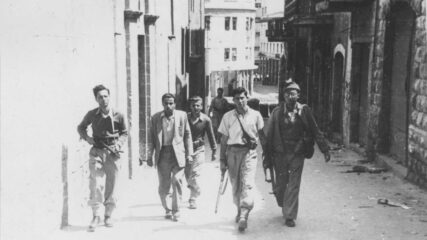
April 22, 1948 As communal violence increases with the approaching departure of British troops and expected declaration of Israeli independence, the Haganah seizes Haifa, and as many as 25,000 Arabs flee the city, possibly in…
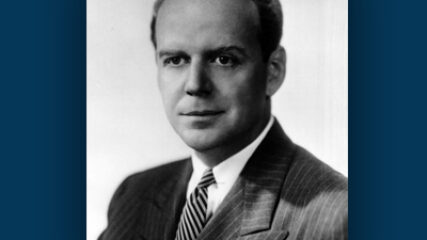
Clark Clifford did not want the US to waiver from the partition resolution passed at the UN in November 1947, which called for the division of Palestine into Arab and Jewish states.

February 22, 1948 Arab militants disguised as British troops, joined by a pair of British deserters, detonate bombs in three British military trucks and an armored car in the morning along the shopping district of…
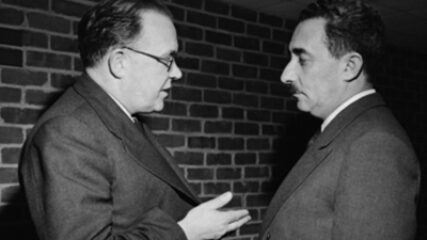
A two-day debate on the future of Britain’s presence in Palestine begins in the British House of Commons. Eventually it is decided to terminate the 1922 League of Nations Mandate for Palestine.
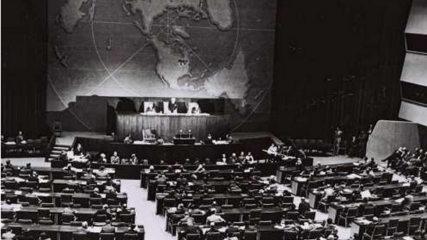
The United Nations General Assembly passes Resolution 181 by a vote of 33-13 with 10 abstentions. The Resolution recommended the creation of separate Arab and Jewish states in Palestine, linked by an economic union.
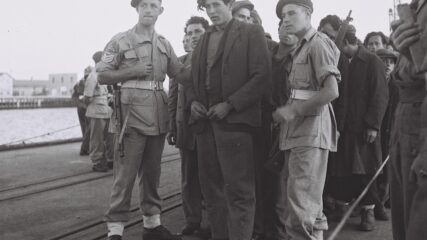
The Aliyah Bet ship Kadima arrives in Haifa under British escort. All of its passengers are arrested and moved to detention camps in Cyprus.
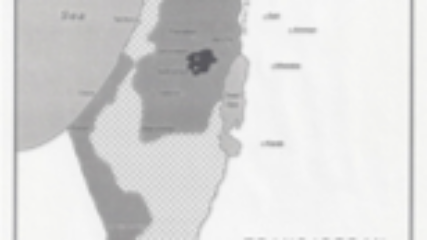
David Ben-Gurion, the chairman of the Executive of the Jewish Agency since 1935, formally accepts the partition plan proposed by the United Nations Special Committee on Palestine (UNSCOP).
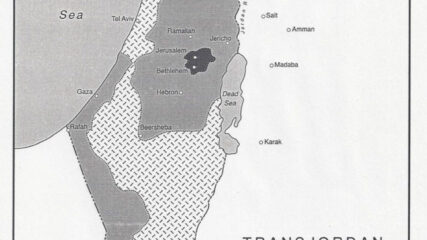
September 29, 1947 The Arab Higher Committee for Palestine formally rejects the U.N. Special Committee on Palestine’s partition plan, which advocates for the division of the land into a separate Jewish and Arab states and…
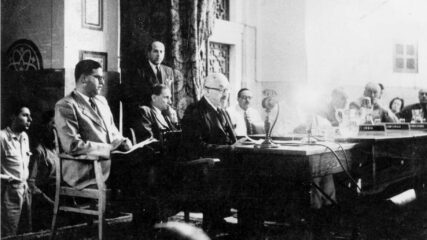
The United Nations had set up UNSCOP in April 1947. Its purpose, like previous commissions that visited Palestine, is to investigate underlying causes for communal unrest and to make political recommendations about curtailing violence.
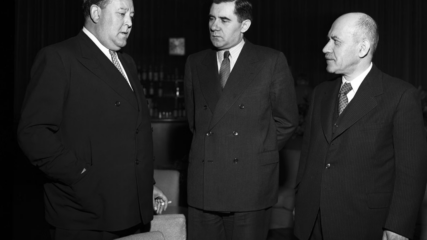
Soviet Foreign Minister Andrei Gromyko proposes a unitary state for Palestine, but vows to support partition if it is deemed the only workable solution.
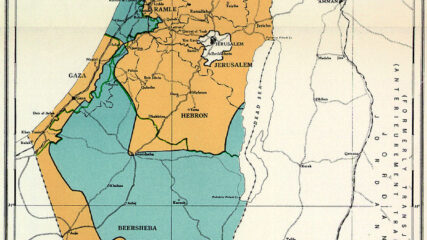
April 2, 1947 The British government notifies the United Nations of its intent to bring the question of Palestine’s future before the next U.N. General Assembly. The United Kingdom also requests a special General Assembly…
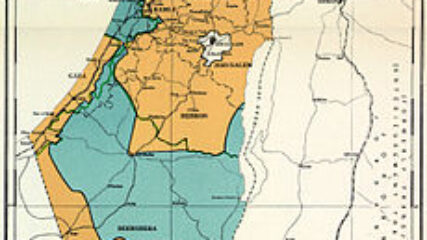
The British respond to rising violence in Mandatory Palestine by asking the United Nations to figure out what to do.
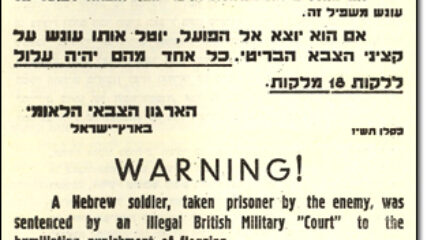
December 29, 1946 The underground militant movement Irgun carries out the Night of the Beatings, an effort across Palestine to flog British soldiers in retribution for the lashing of captured Irgun members. Irgun members abduct…

A Land Transfer Committee report reveals that Arabs in Palestine willingly continued to sell land to Zionists in the early 1940s despite the British legal prohibition on doing so.
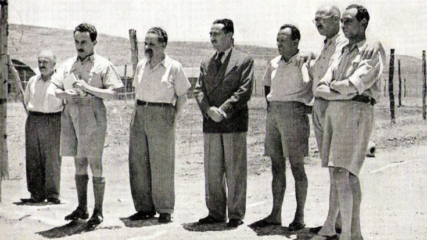
November 1, 1945 The newly formed Jewish Resistance Movement sets off explosions at more than 150 sites along the railway system of British Mandatory Palestine and blows up three British gunboats in the Jaffa and…
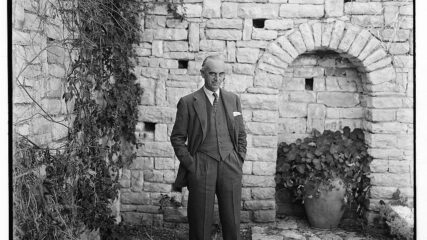
Rattled by numerous attempts on his life, and fearing for the safety of his family, MacMichael steps down in August 1944.